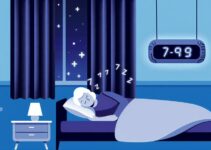Feeling fatigued and struggling to maintain energy levels throughout the day, you've probably considered various factors that could be affecting your testosterone levels. However, have you ever thought about the impact of sleep deprivation on this crucial hormone? It may surprise you to learn that the link between the two is more significant than you might have realized. But what exactly is it about sleep deprivation that causes such a decline in testosterone levels?
Key Takeaways
- Sleep deprivation reduces testosterone levels in men.
- Disrupted sleep patterns and poor sleep quality disrupt hormonal balance, including testosterone regulation.
- Lack of sufficient and restorative sleep induces hormonal imbalance, especially in testosterone regulation.
- Insufficient sleep disrupts testosterone synthesis due to the relationship between sleep, circadian rhythm, and hormone production.
Impact of Sleep Deprivation on Testosterone
Sleep deprivation has been shown to significantly reduce testosterone levels in men, leading to potential negative effects on physical and mental health. One of the key factors influencing this relationship is sleep quality. Poor sleep quality, characterized by frequent awakenings or disruptions to sleep cycles, can disrupt the body's hormonal balance, including testosterone regulation. Additionally, inadequate sleep can disrupt the body's circadian rhythm, further impacting testosterone production.
Furthermore, the impact of sleep deprivation on testosterone levels can also be exacerbated by an individual's exercise routine. Regular exercise is known to positively influence testosterone levels, but when coupled with sleep deprivation, the benefits may be diminished. Research suggests that individuals who engage in intense or prolonged exercise routines without sufficient rest and recovery may experience a decline in testosterone levels, further exacerbating the effects of sleep deprivation.
Disrupted Sleep Patterns and Testosterone
Disruptions in sleep patterns can profoundly impact the body's hormonal balance, including testosterone regulation, particularly when coupled with intense or prolonged exercise routines without sufficient rest and recovery. Sleep quality plays a crucial role in maintaining optimal hormonal regulation, and disturbances in sleep patterns can lead to significant alterations in testosterone levels. Research has shown that inadequate or disrupted sleep can result in reduced testosterone production and secretion, affecting overall physiological function.
Hormonal regulation, including that of testosterone, is intricately linked to the body's circadian rhythm, which is regulated by the sleep-wake cycle. Disrupted sleep patterns can disrupt this delicate balance, leading to dysregulation of hormonal processes. Furthermore, poor sleep quality has been associated with increased cortisol levels, which can further impact testosterone production and metabolism.
Inadequate sleep has been shown to decrease the secretion of growth hormone, which is essential for muscle repair and recovery. This can have a direct impact on exercise performance and muscle development. Moreover, disrupted sleep patterns can lead to increased fatigue and decreased motivation, potentially affecting exercise intensity and frequency, further impacting testosterone levels. Therefore, prioritizing sleep quality and maintaining regular sleep patterns are essential for optimizing testosterone levels and overall physiological function.
Hormonal Imbalance Caused by Lack of Sleep
The lack of sufficient and restorative sleep has been demonstrated to induce a state of hormonal imbalance, particularly affecting testosterone regulation within the body. Sleep plays a crucial role in the regulation of hormonal processes, including the production and release of testosterone. Studies have shown that inadequate sleep quality and duration can disrupt the body's hormonal regulation, leading to a decrease in testosterone levels. Sleep deprivation can lead to increased cortisol production, which in turn can inhibit the production of testosterone. Additionally, disrupted sleep patterns can affect the pulsatile release of hormones, further impacting testosterone regulation. This hormonal imbalance caused by lack of sleep can have far-reaching effects beyond just testosterone levels, influencing metabolism, energy balance, and overall physiological well-being. It is essential to recognize the intricate relationship between sleep quality and hormonal regulation, particularly in the context of testosterone. Addressing sleep deprivation and improving sleep quality may be crucial in restoring hormonal balance and optimizing testosterone levels.
Sleep Deprivation's Effect on Testosterone Synthesis
Insufficient sleep has been shown to significantly disrupt the body's ability to synthesize testosterone, leading to a decrease in overall levels of the hormone. This disruption occurs due to the intricate relationship between sleep, circadian rhythm, and hormone production. Here's why sleep is crucial for testosterone synthesis:
- Circadian Rhythm: Your body's internal clock, or circadian rhythm, plays a vital role in regulating hormone production, including testosterone. Disrupting this rhythm through insufficient sleep can lead to dysregulation of testosterone synthesis.
- Hormone Production: During sleep, especially during the rapid eye movement (REM) stage, testosterone production peaks. Sleep deprivation can reduce the duration of REM sleep, thereby impacting the body's ability to produce adequate amounts of testosterone.
- Research Findings: Studies have consistently demonstrated the impact of sleep deprivation on testosterone levels. For example, a study published in the Journal of the American Medical Association found that just one week of sleep restriction led to a significant decrease in testosterone levels in young, healthy men.
Understanding the intricate relationship between sleep, circadian rhythm, and hormone production underscores the importance of prioritizing quality sleep for maintaining optimal testosterone levels.
Strategies for Improving Sleep to Boost Testosterone
Improving the quality and duration of your sleep can directly impact your body's ability to synthesize testosterone, thereby potentially boosting overall hormone levels. One key strategy for improving sleep to boost testosterone is to maintain a consistent sleep schedule. Going to bed and waking up at the same time every day helps regulate your body's internal clock, known as the circadian rhythm, which in turn supports hormone regulation. Creating a relaxing bedtime routine can also aid in improving sleep quality. This may include activities such as reading, meditating, or taking a warm bath, all of which can signal to your body that it's time to wind down and prepare for sleep. Additionally, optimizing your sleep environment by keeping the room dark, quiet, and cool can promote better sleep. Reducing screen time before bed is crucial as exposure to blue light from devices like smartphones and computers can disrupt the production of melatonin, a hormone that regulates sleep-wake cycles and is also associated with testosterone production. By implementing these strategies, you can work towards achieving better sleep quality, which in turn may positively impact testosterone synthesis and overall hormone regulation.
Frequently Asked Questions
Can Taking Testosterone Supplements Help Counteract the Effects of Sleep Deprivation on Testosterone Levels?
Taking testosterone supplements won't fully counteract sleep deprivation's effect on testosterone levels. Improving sleep quality, managing stress, and making lifestyle changes can help maintain hormonal balance and elevate testosterone levels. Consider consulting a healthcare professional for tailored advice.
Are There Any Specific Sleep Disorders That Have a More Significant Impact on Testosterone Levels Than Others?
The impact of insomnia on testosterone levels is well-documented; chronic sleep deprivation can significantly lower testosterone. Similarly, sleep apnea has been linked to reduced testosterone production. Both conditions can disrupt hormonal regulation, impacting testosterone levels.
How Long Does It Take for Testosterone Levels to Return to Normal After Improving Sleep Patterns?
Improving sleep patterns positively impacts hormone regulation. With lifestyle changes, testosterone levels can normalize. It typically takes a few weeks to months for testosterone levels to return to normal after improving sleep patterns.
Can Excessive Exercise or Physical Activity Contribute to the Negative Effects of Sleep Deprivation on Testosterone Levels?
Excessive exercise can disrupt hormonal balance and exacerbate the negative effects of sleep deprivation on testosterone levels. It's crucial to prioritize sleep quality, dietary influences, and supplement efficacy to support overall hormonal health and optimize testosterone levels.
Are There Any Specific Dietary Changes or Supplements That Can Help Improve Sleep Quality and Subsequently Boost Testosterone Levels?
To improve sleep quality and boost testosterone levels, consider dietary changes with a focus on consuming foods rich in magnesium and zinc. Herbal remedies like ashwagandha and ginseng may also support better sleep and hormone production.
Conclusion
So, when you're burning the midnight oil, you're not just losing sleep – you're also losing testosterone. Your body's hormonal balance can be thrown off by sleep deprivation, impacting your overall health and well-being. But fear not, by improving your sleep patterns, you can boost your testosterone levels and optimize your body's natural processes. So, get those Z's in and let your body do its magic!



